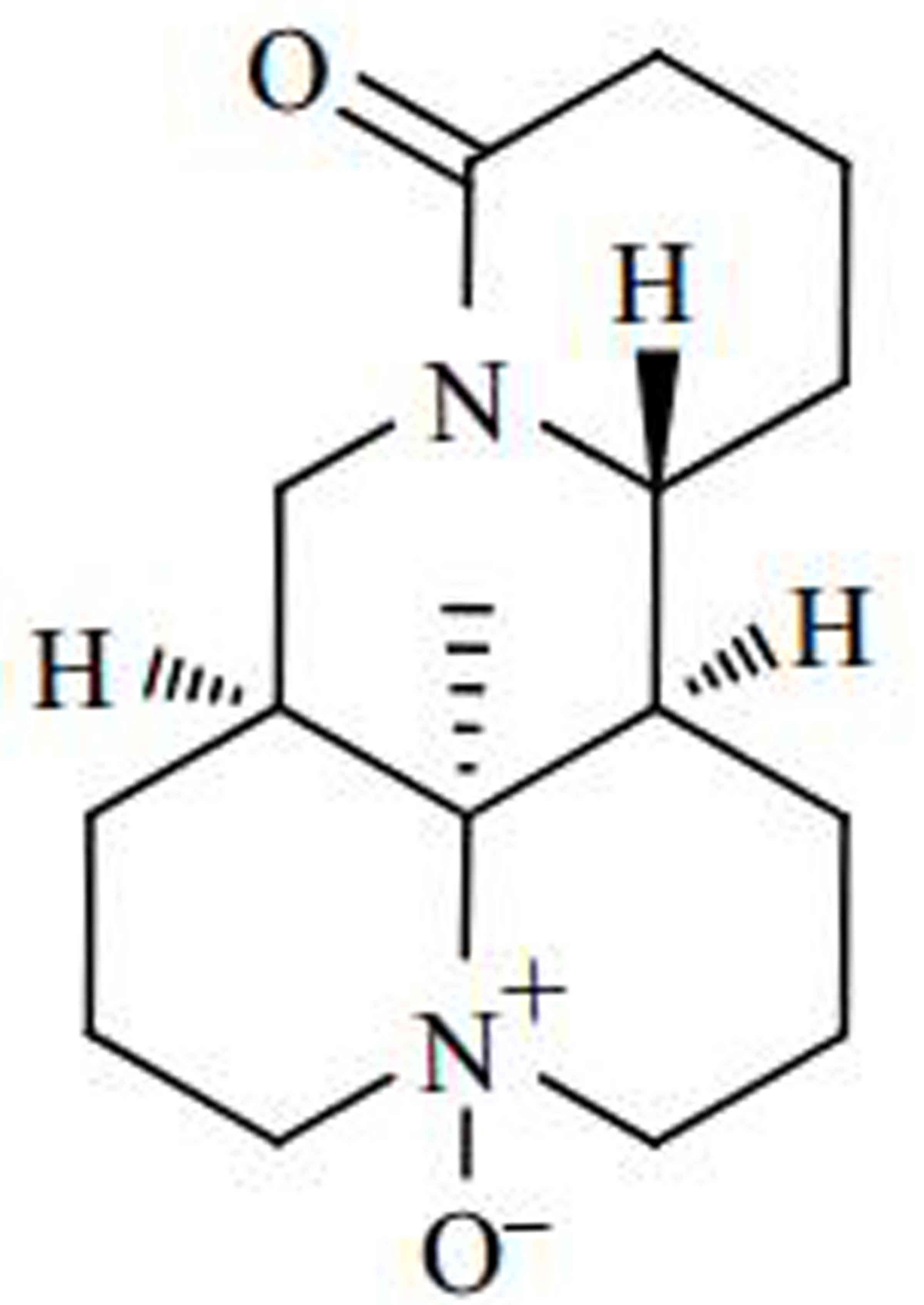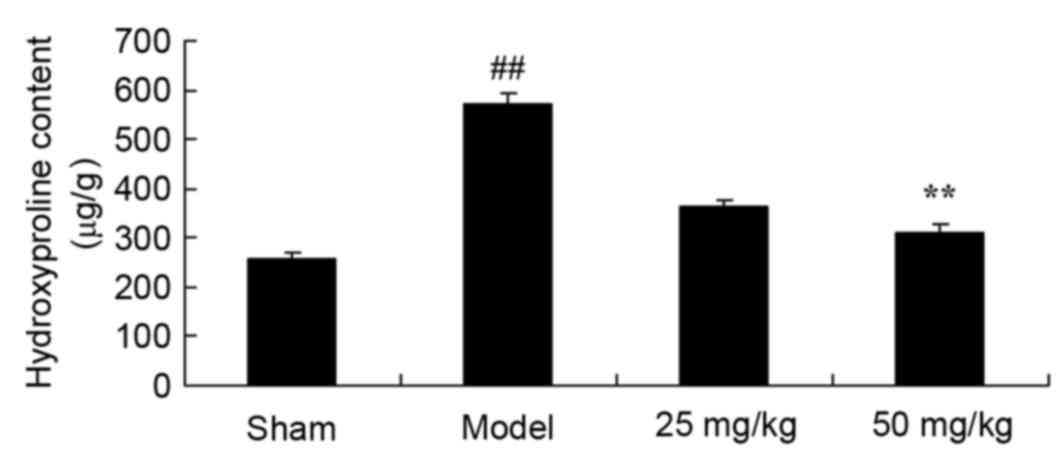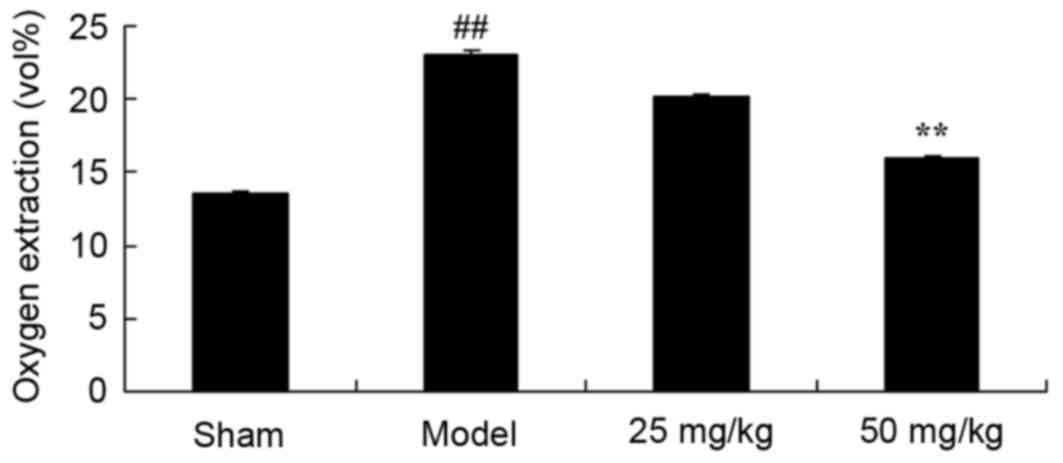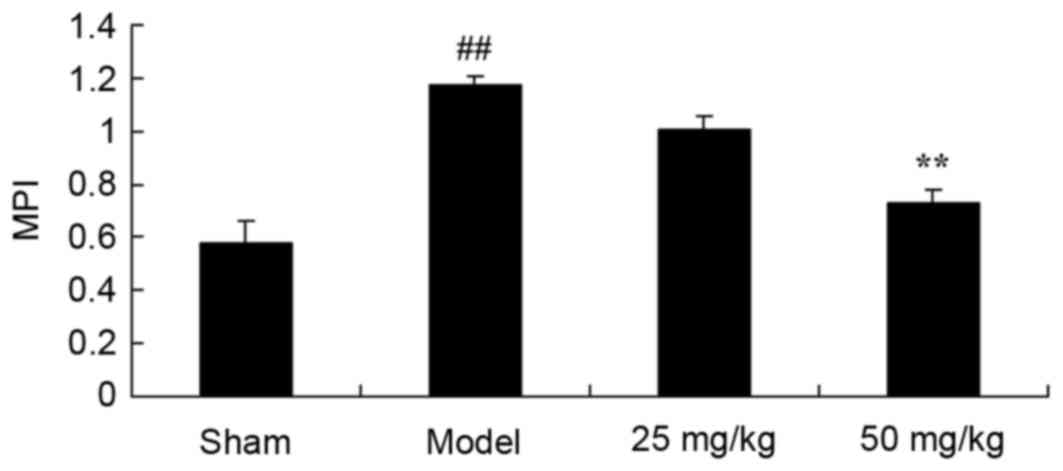|
1
|
Takahashi K, Sasanuma N, Itani Y, Tanaka
T, Domen K, Masuyama T, Ohyanagi M and Suzuki K: Impact of early
interventions by a cardiac rehabilitation team on the social
rehabilitation of patients resuscitated from cardiogenic
out-of-hospital cardiopulmonary arrest. Intern Med. 54:133–139.
2015. View Article : Google Scholar : PubMed/NCBI
|
|
2
|
Blomberg H, Gedeborg R, Berglund L,
Karlsten R and Johansson J: Poor chest compression quality with
mechanical compressions in simulated CPR: A randomized, cross-over
manikin study. Resuscitation. 82:1332–1337. 2011. View Article : Google Scholar : PubMed/NCBI
|
|
3
|
Chung TN, Kim SW, You JS, Cho YS, Chung
SP, Park I and Kim SH: The specific effect of metronome guidance on
the quality of one-person CPR and rescuer fatigue. J Emerg Med.
43:1049–1054. 2012. View Article : Google Scholar : PubMed/NCBI
|
|
4
|
Ducros L, Vicaut E, Soleil C, Le Guen M,
Gueye P, Poussant T, Mebazaa A, Payen D and Plaisance P: Effect of
the addition of vasopressin or vasopressin plus nitroglycerin to
epinephrine on arterial blood pressure during CPR in humans. J
Emerg Med. 41:453–459. 2011. View Article : Google Scholar : PubMed/NCBI
|
|
5
|
Jones CM, Thorne CJ, Colter PS, Macrae A,
Brown GA and Hulme J: Rescuers may vary their side of approach to a
casualty without impact on cardiopulmonary resuscitation
performance. Emerg Med J. 30:74–75. 2013. View Article : Google Scholar : PubMed/NCBI
|
|
6
|
Maitra SR, Bhaduri S, El-Maghrabi MR and
Shapiro MJ: Inhibition of matrix metalloproteinase on hepatic
transforming growth factor beta1 and caspase-3 activation in
hemorrhage. Acad Emerg Med. 12:797–803. 2005. View Article : Google Scholar : PubMed/NCBI
|
|
7
|
Wang X, Qu X, Zhong Q, Li Q and Wang D:
Expression of transforming growth factor beta 1 in lung tissue
during cardiopulmonary bypass-induced lung injury in dogs. Thorac
Cardiovasc Surg. 61:747–753. 2013. View Article : Google Scholar : PubMed/NCBI
|
|
8
|
Hutcheson JD, Ryzhova LM, Setola V and
Merryman WD: 5-HT(2B) antagonism arrests non-canonical
TGF-β1-induced valvular myofibroblast differentiation. J Mol Cell
Cardiol. 53:707–714. 2012. View Article : Google Scholar : PubMed/NCBI
|
|
9
|
Liu XN, Wang S, Yang Q, Wang YJ, Chen DX
and Zhu XX: ESC reverses epithelial mesenchymal transition induced
by transforming growth factor-β via inhibition of Smad signal
pathway in HepG2 liver cancer cells. Cancer Cell Int. 15:1142015.
View Article : Google Scholar : PubMed/NCBI
|
|
10
|
He M, Wu Y, Wang M, Chen W, Yuan W and
Jiang J: The clinical value of oxymatrine in preventing lamivudine
induced YMDD mutation: A Meta-analysis. Evid Based Complement
Alternat Med. 2015:9716162015. View Article : Google Scholar : PubMed/NCBI
|
|
11
|
Jiang G, Liu X, Wang M, Chen H, Chen Z and
Qiu T: Oxymatrine ameliorates renal ischemia-reperfusion injury
from oxidative stress through Nrf2/HO-1 pathway. Acta Cir Bras.
30:422–429. 2015. View Article : Google Scholar : PubMed/NCBI
|
|
12
|
Zhang Y, Yan R and Hu Y: Oxymatrine
inhibits lipopolysaccharide-induced inflammation by down-regulating
Toll-like receptor 4/nuclear factor-kappa B in macrophages. Can J
Physiol Pharmacol. 93:253–260. 2015. View Article : Google Scholar : PubMed/NCBI
|
|
13
|
Shen XC, Yang YP, Xiao TT, Peng J and Liu
XD: Protective effect of oxymatrine on myocardial fibrosis induced
by acute myocardial infarction in rats involved in
TGF-β1-Smads signal pathway. J Asian Nat Prod Res.
13:215–224. 2011. View Article : Google Scholar : PubMed/NCBI
|
|
14
|
Ye S, Weng Y, Sun S, Chen W, Wu X, Li Z,
Weil MH and Tang W: Comparison of the durations of mild therapeutic
hypothermia on outcome after CPR in the rat. Circulation.
125:123–129. 2012. View Article : Google Scholar : PubMed/NCBI
|
|
15
|
Edelson DP, Call SL, Yuen TC and Vanden
Hoek TL: The impact of a step stool on CPR: A cross-over mannequin
study. Resuscitation. 83:874–878. 2012. View Article : Google Scholar : PubMed/NCBI
|
|
16
|
Zhao S, Qian J, Wang J, Tang G, Zhengfei
Y, Jena C, Xiaobo WU, Neil D, Caijing L and Wanchun T: Effects of
oxygen concentrations on postresuscitation myocardial oxidative
stress and myocardial function in a rat model of Cardiopulmonary
Resuscitation. Crit Care Med. 43:e560–e566. 2015. View Article : Google Scholar : PubMed/NCBI
|
|
17
|
Kruzliak P, Pechanova O and Kara T: New
perspectives of nitric oxide donors in cardiac arrest and CPR
treatment. Heart Fail Rev. 19:383–390. 2014. View Article : Google Scholar : PubMed/NCBI
|
|
18
|
Xue M, McKelvey K, Shen K, Minhas N, March
L, Park SY and Jackson CJ: Endogenous MMP-9 and not MMP-2 promotes
rheumatoid synovial fibroblast survival, inflammation and cartilage
degradation. Rheumatology (Oxford). 53:2270–2279. 2014. View Article : Google Scholar : PubMed/NCBI
|
|
19
|
Kim BJ, Hur JW, Park JS, Kim JH, Kwon TH,
Park YK and Moon HJ: Expression of matrix metalloproteinase-2 and
−9 in human ligamentum flavum cells treated with tumor necrosis
factor-α and interleukin-1β. J Neurosurg Spine. 24:428–435. 2016.
View Article : Google Scholar : PubMed/NCBI
|
|
20
|
Stan MS, Sima C, Cinteza LO and
Dinischiotu A: Silicon-based quantum dots induce inflammation in
human lung cells and disrupt extracellular matrix homeostasis. FEBS
J. 282:2914–2929. 2015. View Article : Google Scholar : PubMed/NCBI
|
|
21
|
Tuuminen R, Nykänen AI, Krebs R, Soronen
J, Pajusola K, Keränen MA, Koskinen PK, Alitalo K and Lemström KB:
PDGF-A, -C, and -D but not PDGF-B increase TGF-beta1 and chronic
rejection in rat cardiac allografts. Arterioscler Thromb Vasc Biol.
29:691–698. 2009. View Article : Google Scholar : PubMed/NCBI
|
|
22
|
Wang J, Yu J, Ding CP, Han SP, Zeng XY and
Wang JY: Transforming growth factor-beta in the red nucleus plays
antinociceptive effect under physiological and pathological pain
conditions. Neuroscience. 291:37–45. 2015. View Article : Google Scholar : PubMed/NCBI
|
|
23
|
Fan DL, Zhao WJ, Wang YX, Han SY and Guo
S: Oxymatrine inhibits collagen synthesis in keloid fibroblasts via
inhibition of transforming growth factor-β1/Smad signaling pathway.
Int J Dermatol. 51:463–472. 2012. View Article : Google Scholar : PubMed/NCBI
|
|
24
|
Yan X, Liao H, Cheng M, Shi X, Lin X, Feng
XH and Chen YG: Smad7 Protein Interacts with Receptor-regulated
Smads (R-Smads) to inhibit transforming growth factor-β
(TGF-β)/Smad signaling. J Biol Chem. 291:382–392. 2016. View Article : Google Scholar : PubMed/NCBI
|
|
25
|
Du S, Li H, Cui Y, Yang L, Wu J, Huang H,
Chen Y, Huang W, Zhang R, Yang J, et al: Houttuynia cordata
inhibits lipopolysaccharide-induced rapid pulmonary fibrosis by
up-regulating IFN-γ and inhibiting the TGF-β1/Smad pathway. Int
Immunopharmacol. 13:331–340. 2012. View Article : Google Scholar : PubMed/NCBI
|
|
26
|
Xu Z, Ramachandran S, Gunasekaran M, Zhou
F, Trulock E, Kreisel D, Hachem R and Mohanakumar T: MicroRNA-144
dysregulates the transforming growth factor-β signaling cascade and
contributes to the development of bronchiolitis obliterans syndrome
after human lung transplantation. J Heart Lung Transplant.
34:1154–1162. 2015. View Article : Google Scholar : PubMed/NCBI
|
|
27
|
Guo C, Han F, Zhang C, Xiao W and Yang Z:
Protective effects of oxymatrine on experimental diabetic
nephropathy. Planta Med. 80:269–276. 2014. View Article : Google Scholar : PubMed/NCBI
|























